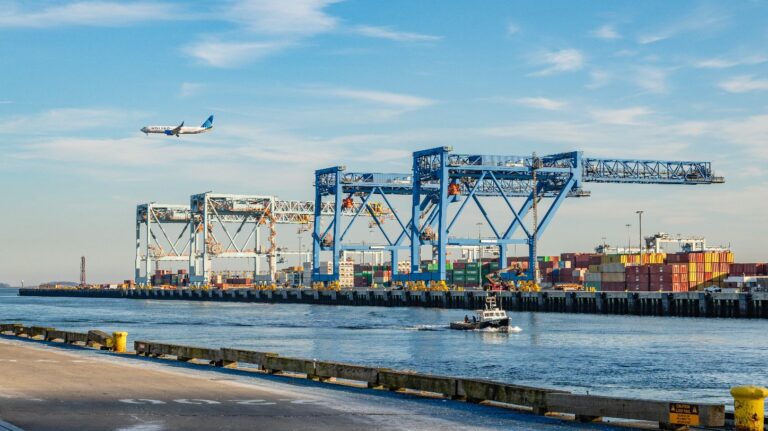From today [29 August 2025], goods under the value of US$800, which were previously exempt from US import duties under the ‘de minimis’ exemption, will now be subject to full customs duties and fees.
The de minimis exemption was created to allow low-value imports enter the US without the need for duties to be paid. The name ‘de minimis’ comes from the Latin phrase ‘de minimis non curat lex’, meaning ‘the law does not concern itself with trifles’, reflecting the idea that courts typically don’t address matters considered too trivial.
The exemption was designed to reduce customs paperwork and costs for both businesses and the US government. In 1938, US congress first set the de minimis exemption at a value of $1. This limit gradually rose over time, most recently in 2016, to $800.
But on 30 July 2025, US president Donald Trump issued an executive order suspending duty-free de minimis treatment for all countries, with this action coming into effect from today.
In the executive order, Trump outlined the reasoning behind this move. He cited national security concerns relating to the flow of fentanyl and counterfeit goods into the US, and issues surrounding tariff evasion, as the rationale for ending the exemption.
So what does this mean for consumers and businesses, both in the US and around the world? From a consumer perspective, economists from the Yale Department of Economics predict that the elimination of the de minimis exemption could cost the average American family up to $136 a year.
A report published by these economists in February 2025 stated that low-income and minority consumers will likely see the biggest impacts on their spending as a result of this change.
This is because 73% of shipments into the US destined for the lowest-income zip codes in the US are valued at $5,000 or less, while for the wealthiest zip codes, just 52% of purchases fall into the sub-$5,000 bracket.
Therefore, it stands to reason that those purchasing more low-value goods from overseas will be impacted more by the reintroduction of duties on these lower-value products.
But it’s not just consumers that will be impacted. Morgan Stanley analysts have predicted that some companies will be impacted more than others, with a spokesperson telling the Wall Street Journal: “With the exemption eliminated, the competitive threat from Temu and Shein may subside, potentially easing competitive pressure on Amazon.”
FREE: Subscribe to Logistics Manager’s bi-weekly USA newsletter!
Furthermore, Sean Turner, director of transport and logistics at UK accountancy and business advisory firm Menzies, has warned that UK sellers must be prepared to cover additional costs: “UK goods shipped to the US are now hit with tariffs – 10% for non-postal shipments, and for postal deliveries either ad valorem duty, based on the tariff rate for the country of origin, or a flat $80-$200 per item. The flat-rate option disappears on 28 February 2026, leaving only ad valorem duty.
“Sellers need to stay sharp: ensure the appropriate declarations are made, tariffs paid by authorised parties to the Customs Border Protection (CBP), and factor in new carrier admin fees to avoid delays. Royal Mail, for instance, has already introduced a handling charge per postal delivery.
“A few exemptions continue to apply to certain goods, such as an exemption for donations and informational material. This is a continuously changing landscape, and businesses are advised to talk to carriers, customs brokers and advisors, to keep on top of changes and adapt supply chains as best they can.”
Parcel company Evri has responded to the removal of the exemption, describing the action as ‘inconvenient and disruptive for both retailers and end-consumers’.
Craig Lee, director of international at Evri, said: “With the de minimis exemption removed, millions of SMEs risk delayed or returned parcels, with significant added expense.
“We’ve trumped the tariffs and are pleased to offer a solution to remove the risk for those businesses, by doing the leg work and collecting parcel taxes and duties up front, supporting UK-based SMEs to retain a crucial income stream in a challenging retail climate.”
Evri is offering two customs clearance options: a ‘retail-paid duty model’ that includes higher duty and taxes to the retailer, but no surprises to the end customer, and a ‘customer-prepaid duty model’, in which Evri will proactively contact the US-based customer whilst the parcel is in the UK to collect duties and taxes upfront.
The winners of the Supply Chain Excellence Awards USA 2025 will be announced in a matter of weeks, following the release of the 2025 shortlist. These prestigious awards recognise and celebrate excellence in supply chains all across North America.
Book your seat now for a fantastic evening at Emanuel Luxury Venue in Miami Beach Florida, where the much-anticipated winners will be announced.
And IntraLogisteX USA is returning to Miami, Florida on 17-18 September to provide focused environment for the entire logistics and supply chain industry to share ideas, discover solutions and improve operational efficiency, agility, scalability, and accuracy.
Click here to learn more about the event, register to attend, or discover how you can exhibit at the show!







